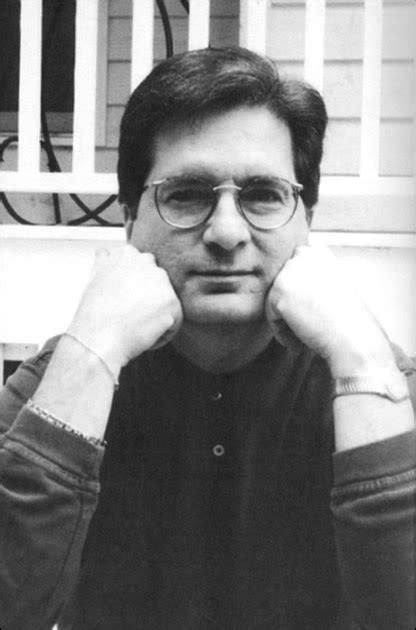A Quote by Taylor Hackford
But a writer's contribution is literary and a film is not literary. When you take that stuff off the page, and cast the people who are going to fit into those roles, that's what being a director is.
Related Quotes
I'm a storyteller, I'm not a literary writer, and I don't want to be a literary writer. People say to me, "Oh, when are you going to write something different?" What? I don't want to write anything different. I'm writing relationships between people, all different colors, all different sizes, all different sexual orientations, and that's what I want to do.
My literary criticism has become less specifically academic. I was really writing literary history in The New Poetic, but my general practice of writing literary criticism is pretty much what it always has been. And there has always been a strong connection between being a writer - I feel as though I know what it feels like inside and I can say I've experienced similar problems and solutions from the inside. And I think that's a great advantage as a critic, because you know what the writer is feeling.
There are characters in some short stories who exist as people, and there are other characters in different short stories who exist as purely literary constructs. You know, the young man in "Forbidden Brides of the Faceless Slaves in the Secret House of the Night of Dread Desire" - I probably got that right - is a literary construct, and enjoys being a literary construct. He has no life off stage, whereas the young men in "How to Talk to Girls at Parties" were as near to being real human beings as I could possibly get them.
The Booker thing was a catalyst for me in a bizarre way. It’s perceived as an accolade to be published as a ‘literary’ writer, but, actually, it’s pompous and it’s fake. Literary fiction is often nothing more than a genre in itself. I’d always read omnivorously and often thought much literary fiction is read by young men and women in their 20s, as substitutes for experience.
The nation as the horizon of an identity that you want to come into being as a fundamental absence of something that is compromised, something that needs to be rescued or made - these matters preoccupy the third world writer. It is seductive for a Marxist understanding of literary practice and production in the sense that it says that material culture determines literary output.
I don't think Roger Ebert has ever mentioned a screenplay. He assigns every auctorial move to the director, which makes some sense since the director has run a one-off game, but if Hamlet were written last year and had been only performed once as a film, and it didn't come off well on screen for whatever reason, it would be gone forever as a literary work, and never would have been considered as one.
Put your hand on your heart to keep it from flying off to the lovely magical literary island Mary Ann Shaffer and Annie Barrows have created in The Guernsey Literary and Potato Peel Pie Society. This novel is a delightful mix of fine writing, powerful emotions, glorious settings and amazing characters who deal with life in a way that will have readers falling in love on every single page.
The moment in the account of Adam and Eve in the book of Genesis is when they realize they're naked and try and cover themselves with fig leaves. That seemed to me a perfect allegory of what happened in the 20th century with regard to literary modernism. Literary modernism grew out of a sense that, “Oh my god! I'm telling a story! Oh, that can't be the case, because I'm a clever person. I'm a literary person! What am I going to do to distinguish myself?...a lot of modernism does seem to come out of a fear of being thought an ordinary storyteller.





































